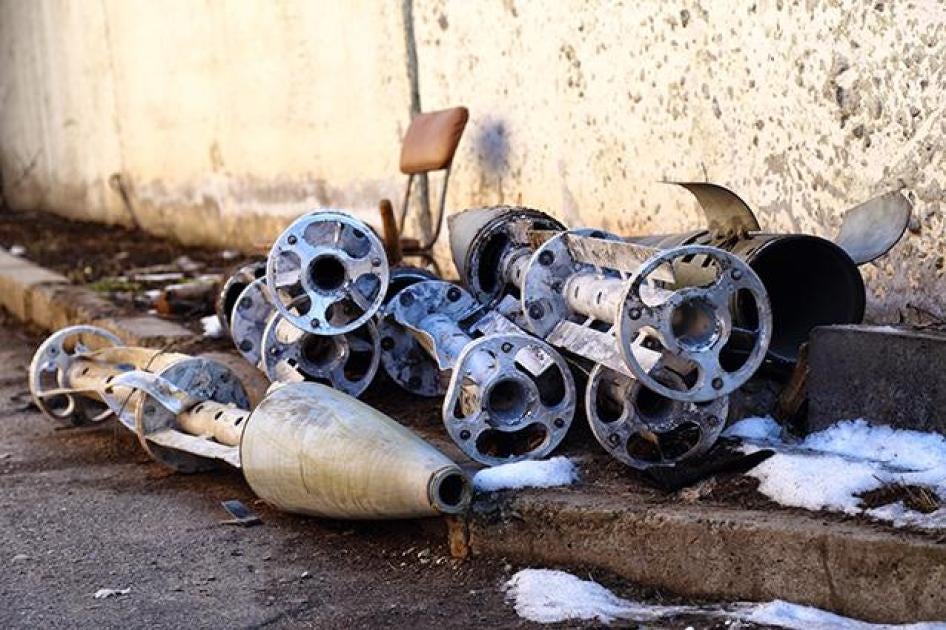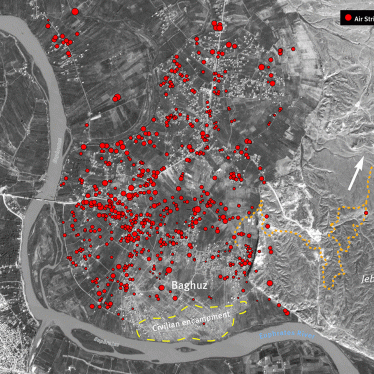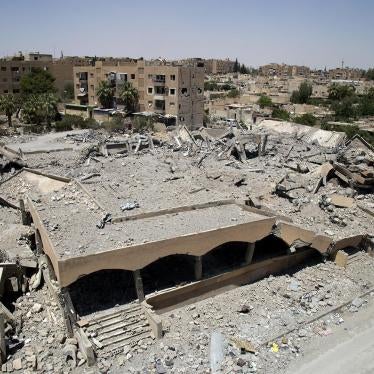(Washington, DC) – Repeated use of cluster munitions in Syria and Yemen during 2015 has been met by growing international support for the treaty banning the deadly weapons, Human Rights Watch said today. The cluster munition attacks have caused numerous civilian casualties.
Attacks in Syria using air-dropped and ground-launched cluster munitions have increased significantly since Russia began its military operation there on September 30, 2015. In Yemen, a Saudi Arabia-led coalition has used at least four types of cluster munitions in 2015. Yet Russia and Zimbabwe were the only countries to vote against a December 7 United Nations General Assembly resolution in support of the international treaty banning cluster munitions.
“Instead of defending cluster munitions, Russia should join the ever-expanding community of nations that reject these indiscriminate weapons,” said Mary Wareham, arms advocacy director at Human Rights Watch. “The UN resolution, supported even by nearly half the countries that have yet to join the treaty, shows the growing sentiment against cluster munitions.”
In Syria, government forces have used cluster munitions across the country since mid-2012, while Islamic State (also known as ISIS) forces used cluster munition rockets in northern Syria in the second half of 2014. Both Russian-backed rebel forces and Ukrainian government forces have used cluster munition rockets in attacks in eastern Ukraine, but not since a February ceasefire.
On October 1, the international Cluster Munition Coalition, which Human Rights Watch chairs, warned Russia against using any cluster munitions in Syria due to the “foreseeable and preventable” danger posed to civilians. Russia should stop using cluster munitions and start supporting the international prohibition on their use, Human Rights Watch said.
Cluster munitions pose an immediate threat to civilians by scattering submunitions or bomblets over a wide area. Their remnants pose a long-term danger, particularly submunitions that fail to explode upon impact, becoming de facto landmines. Russia is not a party to the Convention on Cluster Munitions, signed by 118 countries and ratified by 98. The treaty also requires the clearance of remnants from attacks and assistance to victims of the weapons.
The December 7 UN General Assembly resolution was its first on the Convention on Cluster Munitions. The non-binding resolution passed 139 to 2, with 40 abstentions. Three dozen countries that have not banned cluster munitions nonetheless voted for the resolution, while non-signatories China, Iran, Israel, Saudi Arabia, Syria, and the United States were among those abstaining.
Russia acknowledged humanitarian concern about cluster munitions but said it objects to the way the treaty was negotiated by like-minded states outside UN auspices.
On September 9, at the First Review Conference of the Convention on Cluster Munitions since the treaty went into effect on August 1, 2010, more than 100 countries adopted a declaration condemning any use of cluster munitions by any actor.
To date, 28 countries have finished destruction of their stockpiles in accordance with the Convention on Cluster Munitions, destroying more than 1.3 million cluster munitions containing more than 160 million submunitions. As 2015 comes to a close, two more countries have completed the destruction of their stockpiled cluster munitions under the treaty requirements, in both cases well in advance of the treaty’s eight-year stockpile destruction deadline.
Germany once held 573,700 cluster munitions containing 60 million submunitions, the highest number stockpiled by any member of the treaty. It announced the completion of the destruction of the stockpile on November 25, while Italy destroyed the last of its stockpile of 5,113 cluster munitions containing 2.8 million submunitions on October 31.
“By destroying their stockpiled cluster munitions years in advance of the deadline, nations such as Germany and Italy are leading the way in implementation of the ban,” said Wareham, who is also editor of the annual Cluster Munition Monitor report by the international coalition of organizations working to eradicate the weapons. “We expect similar commitment from others that have banned cluster munitions, as the best way to discourage new use of cluster munitions is to destroy them.”








